In this blog, we delve into how advancements in machine learning have revolutionized process automation in the mortgage industry, particularly through Intelligent Process Automation (IPA). IPA enhances accuracy and reduces the need for human oversight by adapting to changes in real-time. We explore how mortgage lenders are utilizing IPA to refine origination processes, streamline document handling, and improve decision-making, thereby boosting efficiency and cost-effectiveness across the board.
Process automation in the mortgage industry has seen tremendous evolution due to advancements in machine learning. One of the developments is the conventional software tool’s ability to automate more complex processes with reduced human intervention.
For example, Intelligent Process Automation (IPA) involves systems, models, or smart bots that learn from changing circumstances and adapt to them in near real time. This ability allows IPA to automate mortgage processes with more accuracy and less supervision, increasing the efficiency and cost-effectiveness. It also supports risk management, compliance, and decision-making across the mortgage value chain.
In this blog, we have discussed the top applications of intelligent process automation in the mortgage industry and how IPA is assisting lenders modernize the origination processes.
1. Automated Document Processing
The mortgage origination process requires significant paperwork and documentation, which can be labor-intensive and error-prone when performed manually.
Financial institutions can adopt intelligent bots to extract structured and unstructured data from physical documents, PDFs, images, and handwritten documents like income statements, tax returns, and identity proofs. This is possible by utilizing contemporary AI techniques like machine learning and natural language processing, which are beyond the capabilities of traditional OCR technology.
These AI-based bots can automate the process of data extraction, validation, and classification. They can also comprehend the relationships and context of various documents and data, enhancing the reliability and accuracy of the extracted data.
For instance, intelligent document processing (IDP) ( a part of intelligent process automation) can achieve a 99% accuracy rate as per Datasemantics.
Benefits
- Achieve up to 50% faster processing (source: Datasemantics)
- Reduce the chances of mistakes due to manual steps
- Save costs by rationalizing human effort
2. Loan Origination
Conventional methods of application processing, credit checking, estimating risk, etc., can take a lot of time.
Intelligent process automation can increase loan original efficiency by automating various steps such as extracting data, compiling information from multiple documents, and assigning a score to loan applications. It can reduce or sometimes eliminate the need for manual efforts, improving the decision-making and speed for processing mortgage applications.
Benefits
- Meet regulatory compliance
- Evaluate risks precisely using intelligent bots
3. Underwriting Automation
Underwriting is a crucial phase in the mortgage or loan origination process, which evaluates the borrower’s creditworthiness and the risk of making a loan to a specific borrower—who could be an entity, an individual, or a company. Therefore, underwriting necessitates careful data analysis.
According to a randomized experiment by PubsOnline, algorithmic underwriting outperformed the human underwriting process in auto lending, resulting in 10.2% higher loan profits and 6.8% lower default rates.
Mortgage lenders can adopt intelligent automation solutions to increase the efficacy of their underwriting processes. IPA can help them automate the extraction, aggregation, and analysis of data sourced from internal and external sources.
Benefits
- Standardize underwriting criteria and standards
- Evaluate risks with precision
4. Customer Service Automation
As per McKinsey, digital transformation practices and enhanced customer experience result in about 20-30% customer satisfaction and up to 50% profits.
Mortgage lenders can use intelligent chatbots and virtual assistants with generative or conversational AI capabilities to serve multiple purposes. For example, they can engage with customers, respond to questions, provide updates, and aid clients with the mortgage application process.
These intelligent bots can also provide advice, gather comments, address client concerns, respond to frequently asked questions, and more. This makes it possible for lenders to respond to consumer inquiries and service requests in a timely, transparent, and personalized manner, making customers happy and satisfied – one of the most crucial ways to stay competitive in the mortgage market.
Benefits
- Enable 24/7 support
- Leverage human-like communication
- Interact with faster response
- Engage with individualized attention
- Generate leads and optimize costs
5. Fraud Detection and Prevention
For mortgage lenders, one of the biggest issues and difficulties is detecting and preventing fraud, leading to significant financial losses.
In the US, mortgage fraud is a critical issue. In 2019, one out of every 123 mortgage applications had indications of fraud.
In 2023, there were 34.6% more monthly fraud attempts in the home financing sector, according to a recent report released by LexisNexis.
IPA can assist lenders in identifying fraud and managing them using AI, machine learning, and predictive analytics.
When necessary, intelligent bots can help them monitor transactions and activities in real time, spot suspicious activity, and flag possible fraud for manual or automated intervention.
Benefits
- Identify and flag suspicious activities and fraud patterns
- Support Regulatory compliance
6. Mortgage Servicing
Maintaining good customer relations requires managing mortgage accounts, collecting payments , and corresponding with customers. Manual servicing of mortgage accounts consumes significant time and has chances of errors, as human agents need to deal with multiple documents, calls, emails, tracking customers, interactions, etc. Such errors can lead to financial losses and regulatory issues.
Intelligent process automation can help expedite these procedures—including account changes, customer notifications, and payment processing—while reducing the possibilities of error.
Benefits
- Reduce errors and increase the accuracy of payment processing
- Provide clients with timely updates and reminders, enhancing their experience
7. Financial Reporting
Financial reporting is crucial to monitor the organization’s performance and meet the various internal/external audits and compliance requirements. According to a survey by FannieMae—30% of lenders have deployed or are trial users of AI/ML, an increase from 27% in 2018.
IPA can extract the data automatically from systems and relevant documents to help mortgage lenders aggregate financial data from multiple sources, analyze it, and generate comprehensive reports in designated or desired formats. It can also automatically send these reports to all the stakeholders intelligently based on the content.
Benefits
- Get insights for better decision-making
- Generate reports automatically
- Achieve higher accuracy and integrity
8. Loan Closing Process
Bank and mortgage lenders may get substantial closing requests, which could burden their resources, as loan closure involves multiple steps such as document signing, fund disbursement, compliance checks, and final approvals.
The complexity of these tasks often results in delays, especially when borrowers fail to comply with documentation requirements.
With Intelligent Process Automation (IPA), lenders can streamline the closing process by automating document generation, electronic signatures, and disbursement procedures.
Benefits
- Reduce the closing time by up to 50%
- Process documents with higher accuracy
- Enable a positive experience for borrowers
9. Portfolio Management
Managing a portfolio of mortgage loans requires continuous monitoring and adjustment to maximize returns. The sheer volume of data, manual processes, and delayed insights with traditional automation systems are some key challenges.
IPA utilized emerging technologies to automate data collection, real-time analysis, monitoring of loan performance, forecasting trends, reporting, and optimizing portfolio strategies.
Benefits
- Enhance portfolio performance
- Identify and mitigate potential risks
- Automate routine portfolio management tasks
10. Loan Servicing Transfers
Transferring loan servicing rights can be complex which involves the transfer of servicing rights from one entity to another. This process requires meticulous attention to detail and handling customers’ sensitive data while meeting regulatory requirements and maintaining customer trust and satisfaction.
Traditional methods are prone to errors and inefficiencies that lenders can overcome with intelligent process automation. By combining AI, ML, and RPA, lenders can automate the loan servicing and loan transfer processes with secure data migration and regulatory compliance.
Benefits
- Reduce errors during data transfer
- Accelerate the transfer process
- Ensure adherence to regulations
11. Property Valuation
Accurate property valuation is essential for lenders to calculate loan amounts and perform risk assessments. Conventional approaches rely on processes that require qualified appraisers to perform in-depth studies with scant data and insights. These processes are vulnerable to the appraiser’s judgment, which may result in inconsistencies and wrong valuations.
With the aid of AI and ML algorithms, IPA assists in automating the process of property valuation—referred to as Automated Property valuation (APV) models. This includes market data collection and analysis, market comparisons, real-time valuation updates based on shifts in market trends, and integration of geographic information systems (GIS) to evaluate geographical factors that may influence property value. This offers precise appraisals and a more comprehensive picture of the property value.
Benefits
- More precise property valuations
- Faster valuation process
- Reduce reliance on manual appraisals
12. Payment Processing
Timely and accurate payment collections and processing are key to success for mortgage lenders, which helps maintain customer trust and financial stability. However, traditional systems may find it difficult to handle the complexity of a high volume of transactions, manage multiple payment methods, and maintain compliance.
This makes it difficult to process payments accurately and handle discrepancies, which frequently necessitates manual interventions that cause delays and a bad customer experience.
The automated collection, processing, and recording of mortgage payments may be done quickly, accurately, and dependably with IPA. It can instantly confirm payments, give clients updates, and process payments in real time. It can also automatically match the payments with accounts and outstanding balances, prevent fraud, keep customers informed about payment status, and provide detailed insights into payment trends and performance to lenders, which could aid strategic planning.
Benefits
- Process payments faster
- Reduce errors in payment records
- Provide timely updates
13. Escrow Management
Paying insurance, property taxes, and other associated costs is part of managing escrow accounts. Manual entry errors and irregular updates in escrow accounts can cause delays in traditional escrow, resulting in disparities and increased operating expenses.
IPA can help automate the calculation, collection, and disbursement of escrow payments with automated escrow data entry and reconciliation and notifications or updates to customers regarding any changes in escrow accounts or payments.
Benefits
- Reduce errors in escrow calculations
- Streamline escrow management
- Ensure regulatory adherence
14. Customer Onboarding
By assisting clients every step of the way, AI-powered intelligent process automation can help optimize the customer onboarding procedure. IPA can automate the entire process easily and accurately, from gathering customer papers, extracting data, and inserting it into the business system to confirming the supplied information and first approvals.
Benefits
- Accelerate the onboarding process
- Reduce data entry errors
- Improve client experience and satisfaction
15. Marketing and Sales Automation
To attract and retain clients, the mortgage sector needs effective marketing and sales methods. Traditional approaches lack customizations and involve numerous manual procedures and inspections, affecting responsiveness and opportunities.
According to Million Insights, the global digital lending platform market is projected to amount to USD 15.3 billion by 2026, which indicates sizeable opportunities for digitized businesses.
IPA can help you automate numerous activities in marketing campaigns, lead creation, and client follow-up. For example, it can aid in segmenting customers based on data through scoring and prioritization and automating personalized marketing messages. This capability can support lead nurturing, freeing teams to focus on high-value interactions and strategic planning.
Benefits
- Streamline marketing efforts
- Improve lead conversion rates
- Deliver personalized marketing messages
Conclusion
Intelligent process automation solutions can enhance the mortgage loan origination process and help lenders remain competitive in a market that is changing quickly. These solutions can help with digital boarding, document management, underwriting, and the calculation of real-time mortgage pricing options. They can also ensure that industry standards are met and compliance is maintained.
To learn more on how to implement intelligent process automation (IPA) in your mortgage origination process, contact us at info@anaptyss.com


















